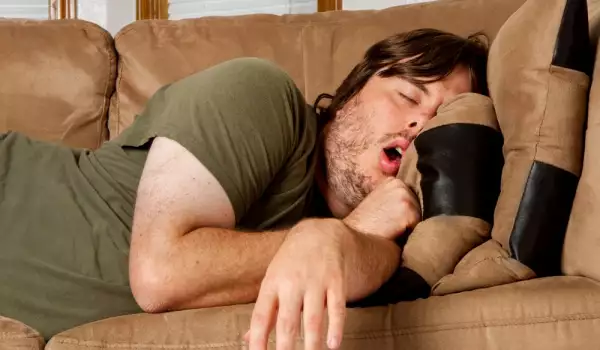A person spends one third of their lifespan sleeping, which is around 10 000 days or 25 years. The amount of sleep needed varies depending on the age group and from person to person. According to the National Sleep Foundation - Arlington, USA, the following chart applies:
- Newborns (0-2 months) need around 12-18 hours per day;
- Infants (3-11 months) need 14-15 hours per day;
- Early childhood (1-3 years) sleep 12-14 hours;
- Preschool age (3-5 years) need 11-13 hours sleep;
- School children (5-10 years) sleep 10-11 hours;
- Teenagers (11-17 years) need 8.5-9.5 hours daily;
- Adults (18+) require 7-9 hours sleep per day.

Most often, the need for an afternoon nap depends on the daily pressure, health and the way in which each person relaxes in their free time. It is actually much healthier to go for a walk among nature, rather than spending the entire afternoon sleeping.
It has been proven in many studies that an afternoon snooze has its health benefits for the body and quality of life, but the inability for us to control its duration can make us sick and lead to a fatal outcome.
Besides being able to lead to blood and lymph stagnation, regular lengthy afternoon naps decrease nighttime sleep duration and can even lead to the impossibility of such. This makes us much more grumpy in the morning, tired and sometimes depressed.
In this way, for example, afternoon naps may lead to diabetes. Scientists have discovered that extended periods of sleep or the lack of nighttime sleep increase the risk of developing diabetes. In some people, headaches are also observed as a result of a late afternoon nap, which according to other studies, is due to certain neurotransmitters in the brain, including serotonin, which plays a crucial role in regulating sleep, mood, aggressiveness and so on.
It is absolutely crucial to note that an extended afternoon doze can disrupt metabolism and most importantly of all, lipid metabolism. As a result, there is an increased accumulation of cholesterol along the blood vessels; the formation on the inner surface leads to constriction of the openings, the formation of thrombi and the disease atherosclerosis, and from there to increased blood pressure.
Again due to the disrupted metabolism and slowed blood flow, toxins accumulate in the liver, kidneys, spleen, which prevents the organs from fully cleansing the blood and leads to the accumulation of harmful substances.

Research done by a group of scientists from Nagoya University, Japan showed that people who sleep less than 8 hours a day are least likely to fall victim to cardiovascular diseases.
Lying down, along with the stagnation of blood and lymph in the body, plus the lack of substances from the environment, which to temper it, often lead to infections. The causes, which are sometimes slightly virulent, can lead to dangerous consequences.
And let us add something a bit more optimistic - that the healthiest people are those who sleep between 6.5 and 7.5 hours a day. Also let us not forget that laughter increases life expectancy.














